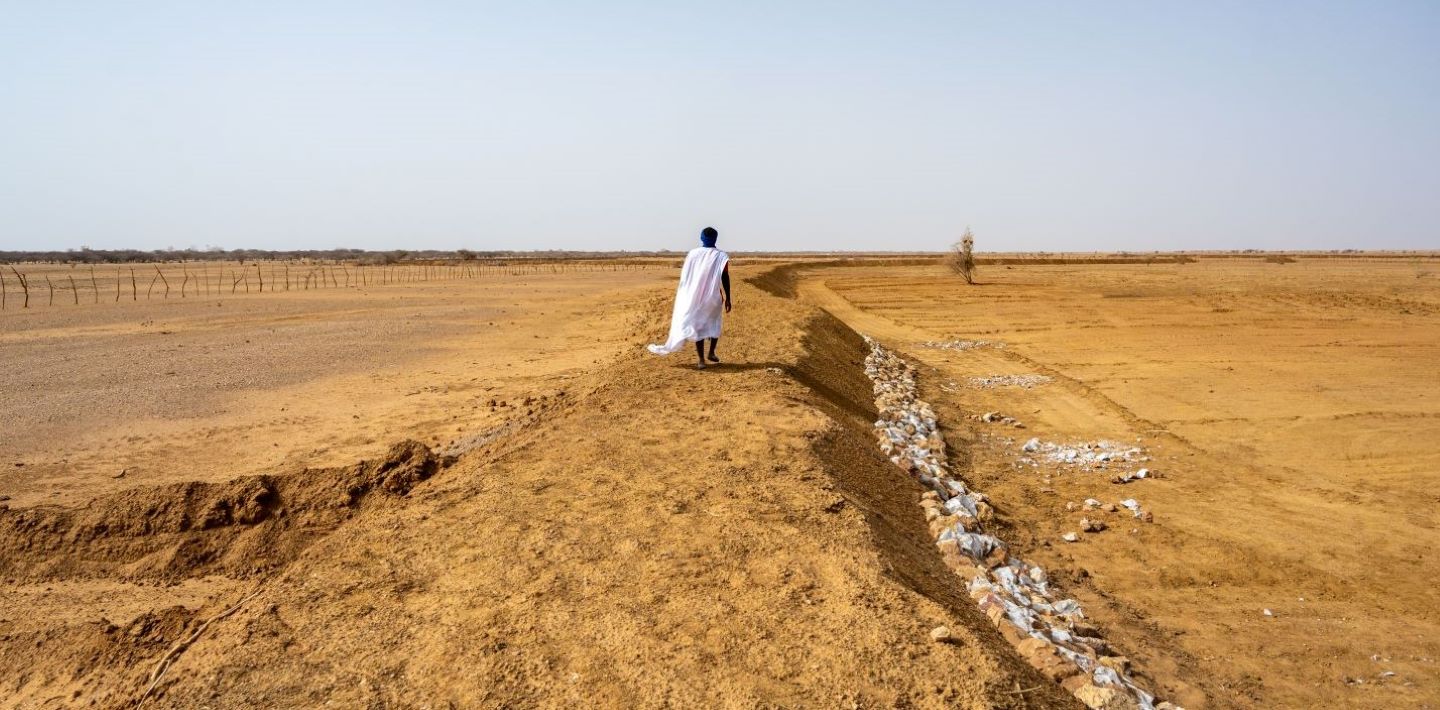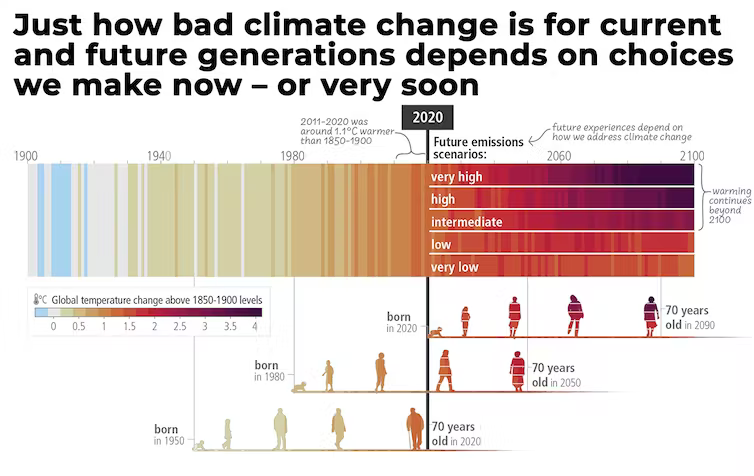It’s not too late to prevent the worst-case scenario
IFAD Asset Request Portlet
Asset Publisher
It’s not too late to prevent the worst-case scenario
IPCC’s latest report shows there are feasible and effective options to adapt to climate change
Estimated reading time: 2 minutes
A cursory look at the front pages is stark evidence that climate change is already impacting the lives of people all over the world. Up to 3.6 billion people are living in contexts that are highly vulnerable to climate change. As is too often the case, those who have contributed the least to our changing climate are suffering the most from its effects.
From floods in Pakistan, to drought in East Africa and rising sea levels threatening the very existence of some Pacific Islands—poor rural people are taking the biggest hit.
But the sixth and last Synthesis Report of the Intergovernmental Panel on Climate Change (IPCC) is a reminder that the power is still in our hands to prevent the very worst outcomes—if we take decisive and ambitious action now.
At the current rate and pace of change, global temperatures are likely to reach 1.5° C above pre-industrial levels in the early 2030s. To give us more time, greenhouse gas emissions must be halved by 2030 through rapid and sustained emissions reductions in all sectors.
Every increment of warming results in rapidly escalating hazards—and for a child born today, who is likely to suffer many more extreme climate events than their grandparents, these increments could mean life or death.
What’s more, food and water insecurity are expected to rise as the world gets warmer. Already, higher temperatures are undermining food production, especially in poorer regions. Not only will hunger and poverty increase, but so too will instability, migration and conflict.
So, what must be done? The solution lies in climate resilient development. This means addressing emissions while providing wider benefits, like empowering women, and focusing on equity and justice. IFAD has been doing this for decades. Our adaptation efforts, such as irrigation and agroforestry, have reduced climate risks in various contexts.
One crucial way of tackling climate change is through climate finance, but insufficient finance is holding back progress. And, although they produce 30 per cent of food calories globally, small-scale farmers receive less than 2 per cent of the little climate finance available.
Against this backdrop, IFAD is committed to dedicating 40 percent of its core resources to climate finance. But with each increment of warming, climate resilience becomes more challenging. That’s why, in its 13th replenishment of funds, IFAD is asking Member States to step up investments in a sustainable future—now.
“Unless we increase investments today, the feasible, low cost and efficient adaptation solutions that exist will not be accessible to the billions of vulnerable rural people that need them now,” says Jo Puri, Associate Vice-President of IFAD’s Strategy and Knowledge Department. “Loss, damage and human suffering and death will increase."
Explore IFAD’s work on Climate and the Environment.
Publication date: 21 March 2023